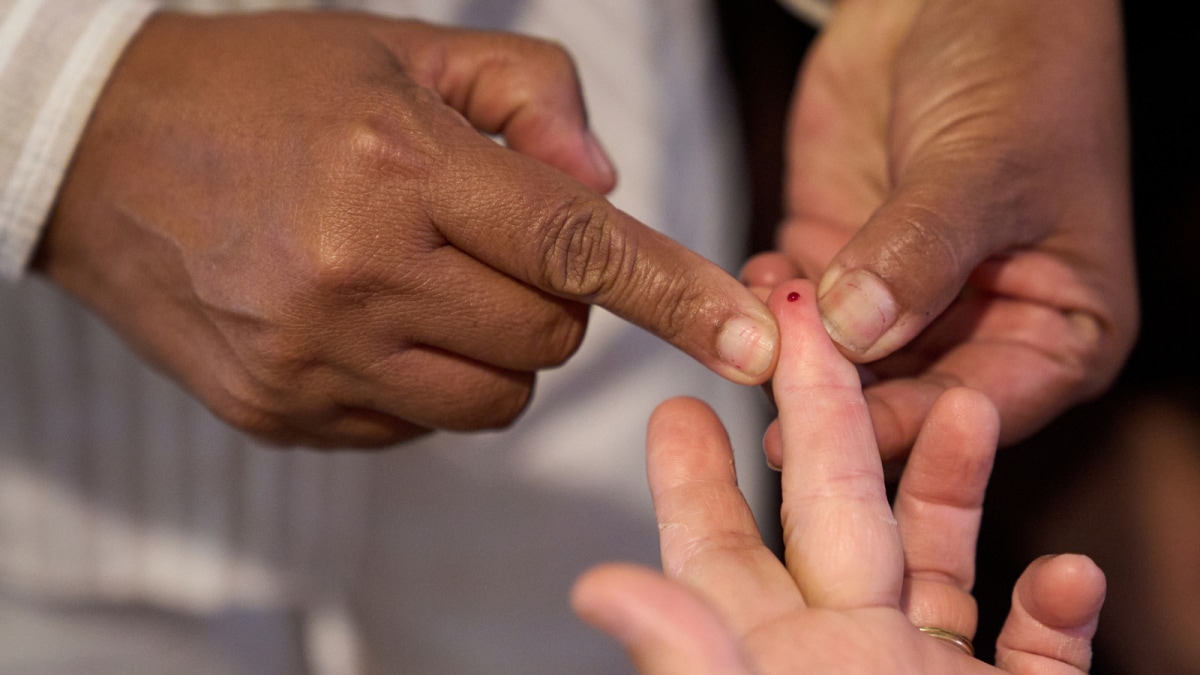Can The Brain Help Regulate Blood Sugar In Type 1 Diabetes? Here’s What New Study Says…

Last Updated:August 06, 2025, 19:07 IST
The discovery was initially met with scepticism, but recent studies have strengthened the idea that the brain plays a key role in managing type 1 diabetes

When insulin drops, leptin falls too, tricking the brain into sensing low energy despite glucose and fat. (Representative/AP)
A recent study published in the Journal of Clinical Investigation has unveiled significant insights into the role of the brain in type 1 diabetes management. Type 1 diabetes is an autoimmune disease that halts insulin production, leading to elevated blood sugar levels. In the absence of insulin, the body resorts to breaking down fat for energy, causing a dangerous increase in blood sugar and ketoacids, a condition known as diabetic ketoacidosis (DKA), typically treated with insulin.
The study highlights the importance of leptin, a hormone produced by fat cells, in regulating hunger and energy balance via the hypothalamus in the brain. It has found that when insulin levels drop, leptin levels also decrease, misleading the brain into thinking there is an energy deficit despite the presence of glucose and fat. This miscommunication prompts the brain to increase sugar and ketone production, resulting in DKA, the study suggested.
In 2011, Dr. Michael Schwartz, a professor at Washington University in the US, and his team conducted an experiment where leptin was injected into the brains of type 1 diabetic mice and rats. Initially, there were no significant changes, but after four days, it was found that the animals’ blood glucose and ketone levels normalised without insulin.
This breakthrough suggested that the brain alone might regulate blood sugar levels, challenging the conventional belief that type 1 diabetes solely stems from a lack of insulin. The study highlighted that not only did the sugar level drop, but it also stayed balanced—indicating the brain can regulate blood sugar on its own.
The scientific community initially met this discovery with scepticism. However, recent studies and analyses have strengthened the hypothesis that the brain plays a crucial role in managing type 1 diabetes. Dr. Schwartz now aims to seek approval from the US FDA for human trials to explore if leptin can yield similar results in humans.
The discovery of insulin 104 years ago marked a major step in diabetes treatment. Now, new research suggests leptin may also help regulate blood sugar, potentially reducing the need for daily insulin or frequent monitoring.
According to the research, convincing the brain that the body has enough energy, or blocking the brain’s signals that trigger glucose and ketone production, could help prevent diabetic ketoacidosis (DKA). This challenges the long-held belief that type 1 diabetes is solely caused by a lack of insulin.
view comments
[title_words_as_hashtags




